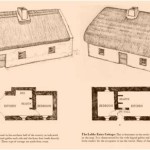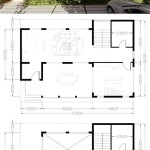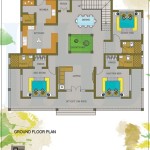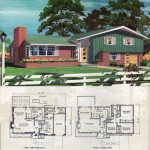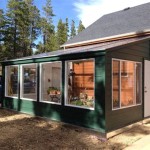Concrete Earth Sheltered Home Plans: Essential Considerations
Concrete earth sheltered homes offer numerous advantages, including energy efficiency, structural stability, and storm resistance. Designing and constructing such homes require careful consideration of several essential aspects to ensure optimal performance and longevity.
1. Site Selection and Soil Conditions
The site's soil conditions significantly impact the design and construction of a concrete earth sheltered home. The soil should possess adequate bearing capacity to support the structure's weight and provide proper drainage. Sandy or rocky soil with good drainage is ideal, while clay soil may require additional measures to ensure stability.
2. Structural Design and Materials
Concrete earth sheltered homes typically employ reinforced concrete walls and roofs to withstand the earth's weight and external loads. The thickness and reinforcement of these structural elements depend on the size and depth of the structure, as well as local building codes and seismic considerations.
3. Waterproofing and Drainage
Ensuring adequate waterproofing is crucial to prevent water seepage and structural damage. Waterproofing membranes, such as bituminous or PVC sheets, are applied to the exterior walls and roof to prevent water penetration. Proper drainage systems, including gutters, downspouts, and perimeter drains, should be implemented to divert water away from the structure.
4. Natural and Artificial Ventilation
Earth sheltered homes can experience moisture buildup and limited natural ventilation. To maintain a healthy indoor environment, a combination of passive and active ventilation systems is essential. Passive ventilation relies on natural air movement through operable windows and vents, while active systems use mechanical fans to circulate air and remove excess moisture.
5. Lighting and Thermal Considerations
Earth sheltered homes often have limited natural light from windows due to their buried nature. To compensate, artificial lighting systems are required to provide adequate illumination. Additionally, the thermal mass of concrete walls and roofs can result in slow temperature changes. Passive solar heating and thermal storage systems can be incorporated to regulate indoor temperatures and reduce energy consumption.
6. Access and Egress
Providing safe and convenient access and egress is of utmost importance. Earth sheltered homes often have sunken entrances and multiple levels. Stairs, ramps, and emergency exits must be designed to meet building codes and ensure accessibility for all occupants.
7. Building Costs and Maintenance
Concrete earth sheltered homes typically have higher construction costs compared to conventional homes due to the specialized materials and construction techniques involved. However, the long-term benefits, such as energy efficiency and storm resistance, can offset these initial expenses. Regular maintenance, including waterproof membrane inspections and drainage system cleaning, is essential to preserve the structure's integrity.
Conclusion
Designing and constructing concrete earth sheltered home plans requires a comprehensive approach that addresses site conditions, structural design, waterproofing, ventilation, lighting, thermal considerations, access, and maintenance. By carefully considering these essential aspects, homeowners can create durable, energy-efficient, and environmentally friendly homes that offer comfort and protection for generations to come.

Underground Home Plans And Designs Natural Security Shelters

Earth Sheltered Homes Grand Designs

Earth Sheltered Home Designs Explanation

Cristian S Earth Sheltered Passive Solar Home In Romania

Efficient Earth Sheltered Homes Department Of Energy

Underground Home Designs Homes Container House Design Dunes

Earth Sheltered Homes The Lost Art Of Building Underground

Earth Sheltered Home An Eco Friendly Passive Housing Alternative Insteading

Earth Sheltering 2030 Palette

How To Build An Underground Home The Tiny Life

